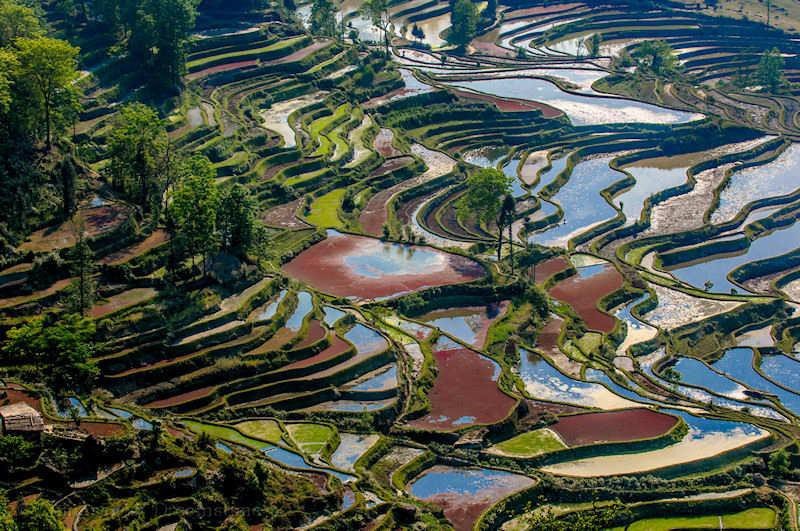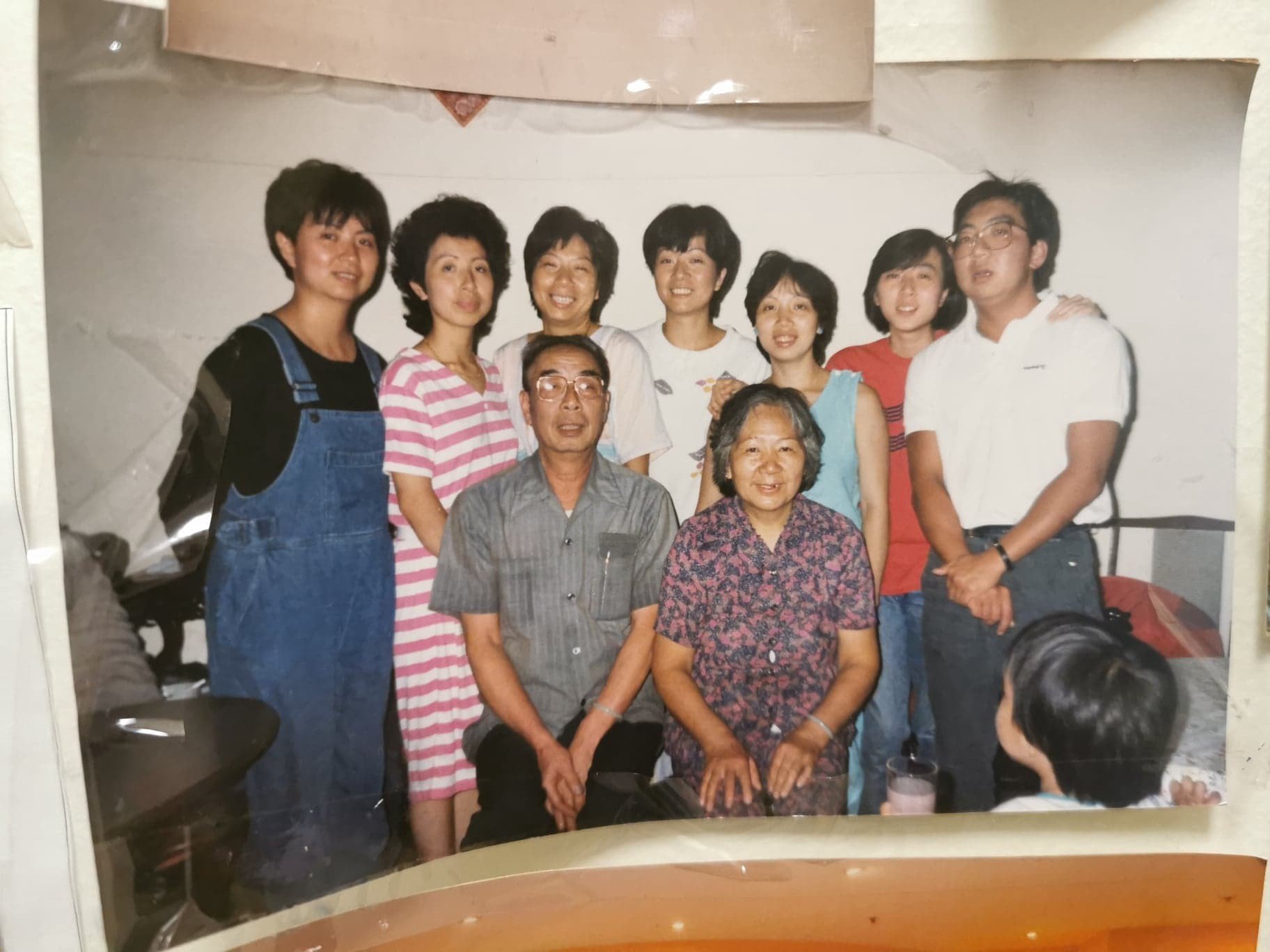Building Transgenerational Joy in a Time of Grief
By Clinton Chan
8 minute read
In late July this year, my extended family experienced something we had dreaded for a long time. My grandma, the matriarch of our family, passed away at the age of 90.
My grandma had been the anchor of our family for decades - she’d not only helped bring up 7 children of her own after migrating our family to Australia from Hong Kong, but she also nurtured 17 grandchildren to adulthood.
However, in the weeks since her passing, and as I spent more time thinking about my grandma’s life, I have felt a tonne of pressure to live a life and leave a legacy as consequential as hers. I have felt burdened with the feeling that the only way to honour my grandma’s legacy is by setting and exceeding hopes and dreams as lofty as hers.
I suspect that other people of colour who are living lives significantly more privileged than their ancestors might feel this way too, and I wanted to dive into this and the idea of “transgenerational joy”.
The life of a real “Iron Lady”
Grandma was born in Dongguan, Southern China in 1932 to a farming family. She had a gruelling upbringing - from a young age she helped my great grandparents with rice farming and took produce to the markets several times a week, often travelling by foot for hours. She didn’t have an extensive education and left school at age 7 to help with the farm.
Grandma toiled rolling rice paddy terraces like these in rural Dongguan
Not long after she was born, the Japanese also invaded China, marking the start of WWII. Her childhood was overshadowed by the scarcity created by the War, and because her family was quite poor they relied on eating only taro and sweet potatoes to get by.
When the Communists declared victory over China after the Chinese Civil War in 1949, she was soon to be married and had already given birth to my eldest aunt. She didn’t have a whole lot of say in the marriage either. At that time, grandpa was a cook in Hong Kong, then still a British territory. Grandma decided to make the demanding journey from Dongguan to Hong Kong to reunite with grandpa and start a new life in the “Western” world. The journey took several days by foot and was a challenging trek for a young mother with a toddler and her elderly parents. They settled in Hong Kong, and in the years to follow my other aunts and my dad were born. In total, they had 7 children with some miscarriages in between.
Hawkers were illegal in 1950s Hong Kong
To supplement my grandpa’s modest income as a cook, grandma sold fruit, vegetables, and sometimes fish on the street as a mobile hawker. For years she hustled, carrying her wares on her shoulders with a bamboo stick around the New Territories, often having to evade police as hawking was illegal.
Years later, my grandparents made another life-changing decision to relocate the family to Australia where my grandpa would work at a new Cantonese restaurant in Sydney. Hong Kong turned out to be more crowded and lawless than they’d hoped and they dreamed of an easier life in Australia. However, on arrival in Sydney their life was anything but “easy”. The 1970s and 80s were a rough time for a simple Cantonese woman, who didn’t speak any English or have a solid education. She had to create a new life for herself and her 7 children with nothing but her wits and grit.
But, in the decades since arriving in Australia, she not only put all of her children through school, she lived long enough to see them all get married, establish comfortable lives, and raise grandchildren who didn’t have to farm or hawk vegetables for a living.
The whole family in Sydney in the early 1990s
Ancestral pressure
Why am I sharing all of this? This story is not very different to the experiences of most migrants arriving in the Western world.
I am sharing this because I hope I am not alone when I say that I place a lot of pressure on myself to grasp and maximise every opportunity that life has given me, knowing that these opportunities weren’t available to my grandma.
I know that my grandma lived a life of extreme hardship and migrated constantly through her life so that my aunts, my dad, and her unborn grandchildren could access these opportunities. Even in old age, grandma lived the same simple and no-frills lifestyle from her childhood so that she could spend her pension and modest savings on her children and grandchildren.
If you are a child or grandchild of migrants who moved to the West to live a better life, this knowledge of ancestral sacrifice can be all-consuming and lead to negative internalised thoughts.
Throughout my life, when I have come up short in meeting the goal or ambitions I’ve set myself I’ve cursed my own laziness or lack of focus. I often thought “What would your grandma think? She lived through something a thousand times worse and you can barely do X”. During her life grandma never guilted me into doing anything by reminding me of her sacrifices - but since her passing, I have started to guilt myself into doing more with my life.
Understanding transgenerational joy
Recently, I spoke to a mental health counsellor at work who specialises in navigating mental health for BIPOC folks. I asked him about how to resolve the guilt and pressure that I have put on myself throughout my life and of late to “honour” my ancestors.
His answer was this: the best way that we can honour the legacy of our ancestors is not to carry that transgenerational trauma with us as guilt, but to live with transgenerational joy in our present life.
This means not being so hard on ourselves when things don’t go to plan, and not setting overly demanding goals for ourselves to somehow “make up” for the ancestral sacrifice. Sure our ancestors had to persevere through harsh circumstances, but they did so so that we could have the freedom to live our present life with all its richness and flaws.
It doesn’t make sense to honour their hardship by living a life of hardship too. If we did that we’d probably end up directly or indirectly guilting our own kids into setting unreasonable expectations of themselves because we made similar “sacrifices” for them. This pressure would continue being passed down for all future generations, each feeling indebted to those before. Surely, this is not what our ancestors wanted when they dreamed we’d have a “better life”.
To conclude, I extend this closing thought not just to myself and my family, but to all those experiencing grief or being reminded familial sacrifice and transgenerational trauma - transgenerational joy is just as important, and we owe it to ourselves to manifest it.




